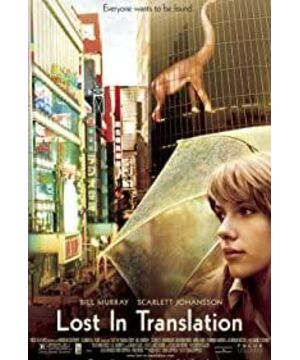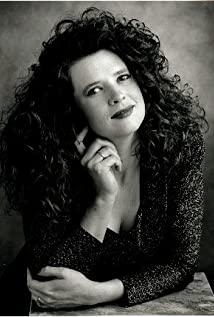Lost in Translation, a middle-aged man and a young woman meet in the far eastern city of Tokyo. At first glance, the genre is so widespread. A successful middle-aged man, a melancholy newlywed young woman, year-end love tore through the coat of peaceful life, lightning flash The drama of Thunder has long been performed in countless movies, such as Juliet Binoche's Damage. In 2003, Coppla painted a soft gray cloud sky for it, Lost in Translation, drama shed, only life, lonely souls meet in the hustle and bustle of the red dust, not so sweet, it is warm, not so much Love is not so much about acquaintance, not so much sentimental, as it is the gain and loss of the inexplicable taste.
When Coppola conceived this story, the actor in his mind was Bill Murry. In the movie, he was the famous star Bob. He was invited to Tokyo to shoot a liquor commercial. This is a middle-aged man with a lot of family and social responsibility. In terms of it, it was also a small vacation that temporarily escaped from various roles. He has maintained a stable marriage for 25 years.
The East is so different. His wife kept sending him faxes, but only to discuss some trivial issues about home decoration with him. He called home to talk about his feelings in Japan, but his wife was absent-minded and busy with other things. It was the fatigue of middle-aged marriage. He avoided the monotonous and familiar daily life. In an unfamiliar eastern city, he felt more clearly his loneliness, loneliness in a heterogeneous culture, and loneliness in his "own life".
The old man has a kind face, a tired and warm smile, the helplessness and loneliness of a middle-aged man, the hero and joy of his youth are sinking in his deep eyes, he stands slenderly in the elevator of the Tokyo hotel, Looking down at the top of the Japanese, facing Japanese accent English and etiquette and customs, showing a cautious and polite smile. Charlotte, a philosophy graduate, came to Tokyo to work with her husband, a young pop band photographer. She has a European name and has studied metaphysics that is difficult to make a living. Now she is put in a hotel like luggage by her husband. She always wears clothes during the day. Pajamas sitting on the window sill overlooking Tokyo's huge red dust. So she and Bob, naturally, two Americans in the East met in a hotel.
In fact, this has nothing to do with love, but the encounter of a lonely soul. A middle-aged man who has been fascinated by flower matters, a young girl who does not know how to enter the prime of life, suddenly read about each other's loneliness. The people around are so busy and enjoy themselves, whether they are Japanese or their American compatriots. This is in Tokyo, with lights feasting and busy, light rail cars roaring by, and the red dust is right beside it, and it seems that it is too far away to reach.
They need to be interpreted, but the meaning is lost in the translation. Bob is confused by the sensual and expressive gestures of the Japanese director, but the female translator interprets only a few sentences. The Japanese photographer’s Japanese accent makes it difficult for him to understand. Hotel English songs are also sung in nightclubs, but they are American movie songs from the 1970s. The little American actress who stayed in the same hotel was keen to talk to Japanese reporters about some superficial oriental cultural symbols. The media seemed to be conspiring to run a false cultural identity. Charlotte silently walked into the Buddhist temple, meditating amidst Sanskrit sounds.
Lost in Translation does not have the obvious Western culture-based chauvinism often found in Hollywood. On the contrary, it describes the honest bystanders of Westerners in front of Eastern culture. The Japanese society in the film is shown in a multi-level quick glimpse. , Exaggerated TV entertainment programs, video game arcades fascinated by teenagers, peaceful smiles and gestures of Japanese ikebana women, kimono brides walking slowly among the historic sites of Kyoto... Because of this honest sense of alienation and awe, Lost In Translation This kind of perplexed cognition can make all people living in a heterogeneous culture feel the same-this can be the story of the Americans in Japan, or the story of the Japanese in the United States.
Charlotte took the old man Bob on an expedition in Tokyo. There are bars, KTVs, fashionable young people, and colorful young people dancing. Bob meets the young Japanese who are fluent in English and live a comfortable life. He slowly walks out of the closure. Depressed, chatting loudly with the old Japanese lady in the hospital, and taking risks in a small Japanese restaurant, even though he complained that "restaurants let customers cook their own food!" (He is eating hot pot).
The modern East and the West seem to be close together in the rapidly rotating urban life, but this infinite closeness makes people feel that they cannot be merged, just as the translation of Japanese and English will never arrive. Just like the hopelessness of communication between people. Even like Bob and Charlotte, it's like the rising life curve and the falling life curve witnessing each other accidentally, it is a stop in the life journey, not a stop.
The ending is wonderful, separated on the streets of Tokyo, maybe with smiles, maybe with tears, no one knows what they said in the crowd, who knows, like two drops of water, disappearing into the ocean.
View more about Lost in Translation reviews










